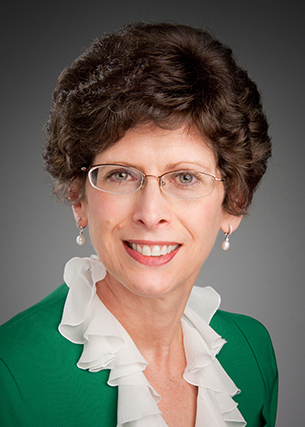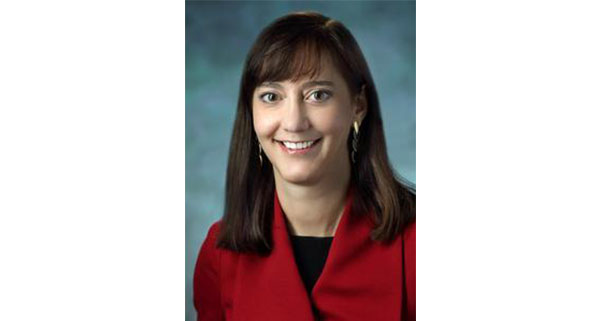Guest Post by Dr. Melissa Hudson: How Has the Childhood Cancer Survivor Study Informed the Care of Children With Cancer?
| The eighth principle in the Imperatives for Quality Cancer Care states, “Systematic long-term follow-up should generate data that contribute to improvements in cancer therapies and decreases in morbidity.” In this post, Dr. Melissa Hudson of St. Jude Children’s Hospital describes the multitude of ways in which the Childhood Cancer Survivor Study’s decades of medical data has helped connect the dots between primary childhood cancers and the late effects of associated treatments. |

Guest Post By Melissa M. Hudson, MD
Director, Cancer Survivorship Division, Dept. of Oncology, St. Jude Children’s Research Hospital
Progress in survival for childhood malignancies is tempered by the sequelae of the cancer and its treatment. Compelling evidence supports that childhood cancer survivors are a highly vulnerable group with a substantial risk of adverse health-related and quality-of-life outcomes resulting from their curative cancer therapy, broadly called “late effects”. Observational studies of survivor health outcomes represent a critical first step to characterizing those at high risk for late effects who may benefit from interventions to prevent or reduce the risk of treatment-related health problems. This research involves investigations evaluating how the risk of a specific late effect is influenced by the primary cancer and its treatment, as well as by personal factors such as age, sex and race, and underlying genetic predisposition and health-related behaviors.
The Childhood Cancer Survivor Study (CCSS), a multi-institutional, multi-disciplinary collaborative NCI-funded research resource, was established in 1994 to systematically evaluate long-term outcomes among childhood cancer patients who survived five or more years from diagnosis. The CCSS cohort, which now includes more than 24,000 survivor participants diagnosed between 1970 and 1999, has been the source of some of the most significant publications addressing long-term mortality, morbidity and quality of life of childhood cancer survivors.
Seminal findings from this cohort include:
- Documentation of the magnitude and severity of chronic health conditions experienced by survivors in the first three decades following treatment;[1][2]
- Demonstration of increasing and excess late mortality attributed to subsequent neoplasms, cardiac, and pulmonary causes among exposed childhood cancer patients,[3] especially among survivors of Hodgkin lymphoma;[4]
- Delineation of dose-risk models for radiation-associated breast cancer,[5][6] CNS tumors,[7] and thyroid cancer;[8]
- Identification of increased risk of late-occurring and recurrent stroke among long-term survivors exposed to CNS radiation;[9][10]
- Documentation of the impact of modifiable cardiovascular risk factors like hypertension on the incidence and severity of major cardiac events;[2]
- Characterization of sociodemographic factors, cancer treatments and health behaviors predisposing to impairment in physical and psychological health status among aging childhood cancer survivors;[11]
- Evaluation of the impact of cancer treatment on neurocognitive functioning, emotional health and distress and health-related quality of life;[12][13]
- Identification of sub-optimal participation in screening and surveillance practices for subsequent neoplasms[14][15] and health-protective behaviors like physical activity.[16][17]
Findings from these studies have been essential in developing safer therapies for newly diagnosed patients, counseling patients and families about potential health risks, and guiding the development of health screening recommendations and health-preserving interventions both during and after completion of cancer therapy. As such, the CCSS resource has played a pivotal role in informing the care of children with cancer across the survivorship spectrum. Ongoing research in the cohort aims to characterize risk profiles for survivors from more modern eras (1987-1999) and integrate molecular biology-based approaches to refine to expand risk definitions for targeted survivorship outcomes that will enhance identification of high-risk populations who may benefit from measures to prevent and re-mediate cancer treatment toxicity.
About the Author
Melissa M. Hudson, MD is currently a Member and Director of the Cancer Survivorship Division in the Department of Oncology at St. Jude Children’s Research Hospital. She directs the After Completion of Therapy Clinic, which now monitors over 5,000 long-term childhood cancer survivors treated on St. Jude trials. Dr. Hudson serves as Co-Chair of the Children’s Oncology Group Long-Term Follow-Up Guidelines for Survivors of Childhood, Adolescent and Young Adult Cancer and Co-Chair of the International Late Effects of Childhood Cancer Guideline Harmonization Group. She is also the Chair of the Childhood Cancer Survivor Study Education Committee.
The views & opinions expressed in any guest post featured on our site are those of the guest author and do not necessarily reflect the opinions & views of the National Coalition for Cancer Survivorship.
Read our blog and comment policies here.
Sources Cited
- Oeffinger et al, New England Journal of Medicine, 2006
- Armstrong et al, Journal of Clinical Oncology, 2014
- Mertens et al, Journal of the National Cancer Institute, 2008
- Castellino et al, Blood, 2011
- Inskip et al, JCO, 2009
- Moskowitz et al, JCO, 2014
- Neglia et al, JNCI
- Sigurdson et al, Lancet, 2005
- Bowers et al, JCO, 2006
- Fullerton et al, Neurology, 2015
- Hudson et al, JCO, 2014
- Gurney et al, JCO, 2009
- Kadan-Lottick et al, JNCI, 2010
- Oeffinger et al, JAMA, 2009
- Nathan et al, Ann Intern Med, 2010
- Wilson, C.L. et al, Cancer Epidemiology, Biomarkers, and Prevention, 2014
- Jones et al, JCO, 2014





